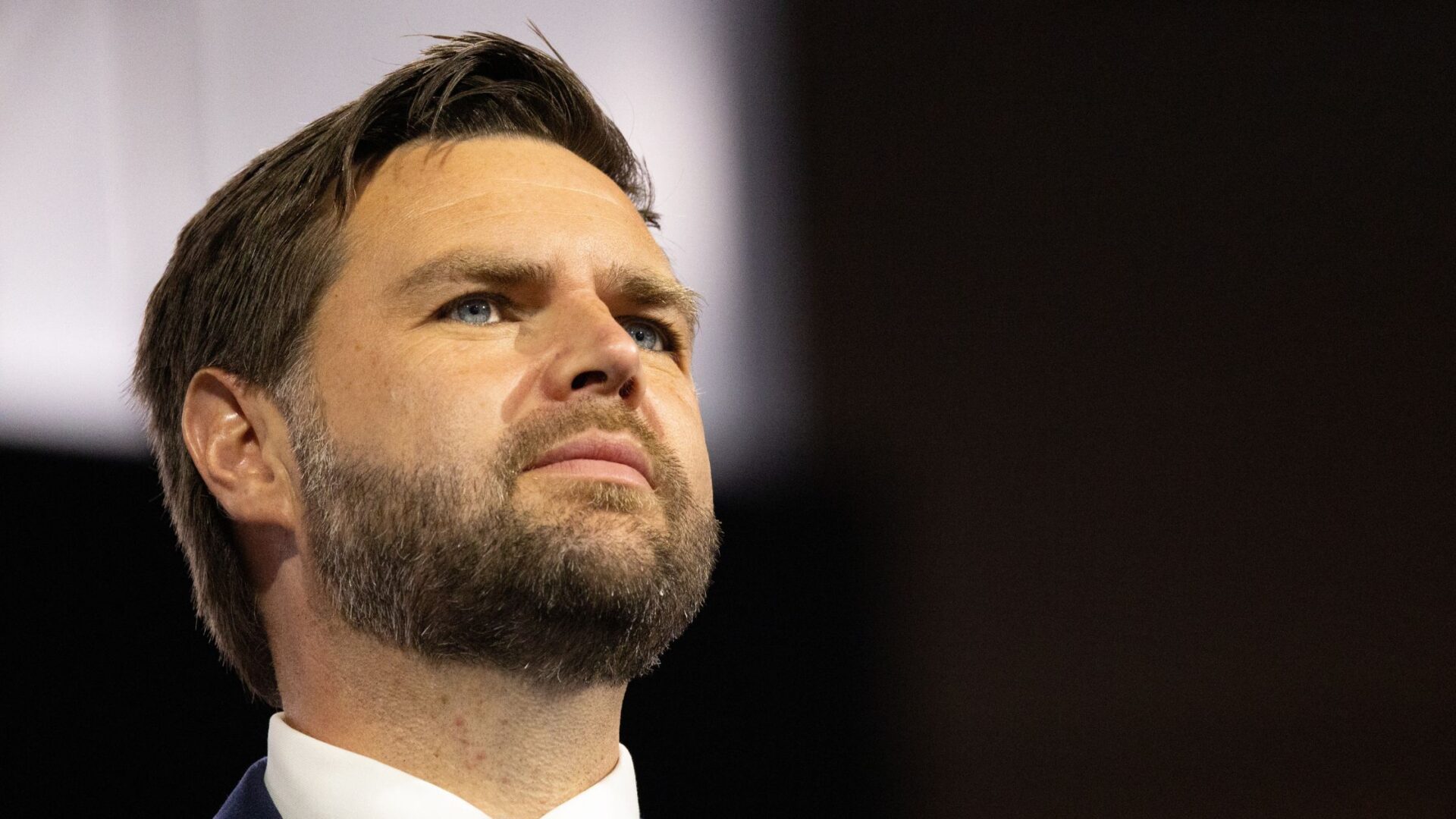Key Takeaways
- JD Vance’s ABC interview ended suddenly when he dodged a question.
- The host asked about a bribe claim against former “Border Czar” Tom Homan.
- Instead of answering, Vance shifted focus to the government shutdown.
- ABC cut the live interview after the unexpected pivot.
- Vance later criticized ABC on social media for ignoring bigger issues.
JD Vance appeared on ABC’s flagship program to discuss major issues. He planned to cover the Middle East, China threats, and the looming government shutdown. However, during the conversation, host George Stephanopoulos steered the topic toward an alleged bribe involving Tom Homan. When asked if Homan had taken fifty thousand dollars as part of an FBI operation, Vance refused to answer directly. Instead, he switched to blaming Democrats for the shutdown. Frustrated by the move, Stephanopoulos cut the interview short.
Background on the Interview
JD Vance, a sitting senator, sought to highlight global risks. He named peace talks in the Middle East and China’s supply chain threats. At the same time, the federal government faced a shutdown deadline. Vance felt these topics were vital for Americans. He viewed his ABC appearance as a chance to inform voters. Meanwhile, George Stephanopoulos, a veteran journalist, followed standard practice. He aimed to explore all angles, including controversial claims. That approach led to a direct question about Tom Homan.
Interview Breakdown
When Stephanopoulos asked about Homan’s alleged bribe, the tone shifted. He pointed out reports that Homan accepted money in an FBI probe years ago. Stephanopoulos pressed for Vance’s view on that claim. In response, Vance said the real story was the government shutdown. He accused Democrats of gridlock, then refused to address the Homan question. Therefore, Stephanopoulos saw no room to continue. He announced the show would move on. The sudden end surprised viewers.
Why JD Vance Refused to Answer
JD Vance said he would not discuss what he saw as a fake scandal. He called the Homan reports baseless. Moreover, he argued that millions of Americans cared more about national security and public services. He said, “Peace in the Middle East? China threatening critical supply chains? Government shutdown? George S doesn’t care about that. He’s here to focus on the real story: a fake scandal involving Tom Homan.” In other words, Vance believed ABC had chosen the wrong priority.
Vance’s Response on Social Media
After the abrupt cut, JD Vance took to social media to voice his displeasure. He posted a brief but pointed message criticizing ABC’s focus. He emphasized that bigger issues deserved airtime. By doing so, he rallied his supporters. He also challenged media outlets to cover what he considered more pressing matters. His tweet earned thousands of likes and retweets. Meanwhile, critics argued he was dodging a serious question. Thus, the debate spilled over into comment sections and news feeds.
Impact on Media and Politics
This incident highlights the tension between politicians and the press. On one hand, reporters seek accountability on all claims. On the other, politicians can view some questions as distractions. The clash underscores how live interviews can heat up quickly. It also raises a question: should hosts push on every allegation? Or should guests steer discussions toward their agenda? Ultimately, viewers saw a rare on-air cutoff. That moment itself became the biggest story of the segment.
Public Reaction and Commentary
Viewers on social media debated who was at fault. Some praised JD Vance for standing his ground. They argued that real-world issues deserve prime time. Others sided with Stephanopoulos, saying guests must answer tough questions. Political analysts suggested both sides had valid points. Accordingly, several blogs and talk shows revisited the clip. They dissected each moment of the exchange. As a result, the controversy spread beyond ABC’s audience.
What Comes Next for JD Vance
Looking ahead, JD Vance will likely face more probing interviews. He may choose to stick to his strategy of redirection. Alternatively, he could decide to address the Tom Homan topic directly. In any case, media trainers will watch closely. They will note if Vance can handle off-script queries. Meanwhile, Stephanopoulos and other hosts will prepare follow-up questions. They might aim to test Vance’s composure further. Therefore, viewers can expect more sparks in future segments.
Lessons for Politicians and Journalists
Interviews of this kind teach two key lessons. First, politicians must weigh the cost of refusal. Dodging a question can lead to lost airtime. Second, journalists must balance follow-up pressure with maintaining the conversation. Pushing too hard can end interviews prematurely. Yet, soft interviewing risks superficial coverage. Successful dialogue requires both sides to engage respectfully. That way, viewers gain deeper understanding.
Conclusion
The clash between JD Vance and ABC revealed the push and pull in political interviews. While Vance wanted to highlight major threats, Stephanopoulos sought clarity on a specific claim. Their disagreement ended the exchange, leaving both sides to argue their case online. In the end, this episode serves as a reminder that live media carries risks for guests and hosts alike. It also shows how a single question can spark a nationwide debate.
FAQs
What led to the abrupt end of the interview?
The host asked JD Vance about reports of a $50,000 bribe taken by Tom Homan. Instead of answering, Vance shifted to other topics. Stephanopoulos then chose to end the segment.
Why did JD Vance refuse to address the Homan question?
Vance called the scandal fake. He insisted bigger issues like the shutdown deserved more focus. He felt the bribe question distracted from those topics.
How did social media users react to the confrontation?
Some praised Vance for defending important issues. Others criticized him for dodging tough questions. Analysts on both sides joined the debate.
Will we see more tense interviews with JD Vance?
Likely yes. As a public figure, Vance will face hard questions. Future hosts may test his willingness to answer off-script queries.
